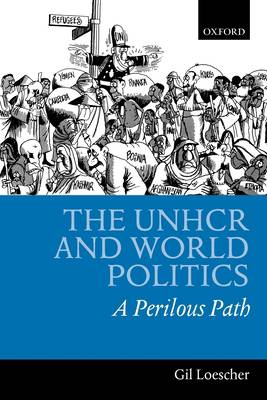
Door een staking bij bpost kan je online bestelling op dit moment iets langer onderweg zijn dan voorzien. Dringend iets nodig? Onze winkels ontvangen jou met open armen!
- Afhalen na 1 uur in een winkel met voorraad
- Gratis thuislevering in België vanaf € 30
- Ruim aanbod met 7 miljoen producten
Door een staking bij bpost kan je online bestelling op dit moment iets langer onderweg zijn dan voorzien. Dringend iets nodig? Onze winkels ontvangen jou met open armen!
- Afhalen na 1 uur in een winkel met voorraad
- Gratis thuislevering in België vanaf € 30
- Ruim aanbod met 7 miljoen producten
Zoeken
€ 134,45
+ 268 punten
Uitvoering
Omschrijving
Over fifty years ago, governments established the Office of the United Nations High Commissioner for Refugees (UNHCR) to be a human rights and advocacy organization. This is the first independent history of this highly important establishment. Gil Loescher, one of the world's leading experts on refugee affairs, draws upon decades of personal experience and research to examine the origins and evolution of the UNHCR, identifying many of the major challenges facing the organization in the years ahead. A key focus is the extent to which the evolution of the UNHCR has been framed by the crucial events of international politics during the past half century and how, in turn, the actions of the eight past High Commissioners have helped shape the course of world history. In the end, Loescher offers a series of bold policy recommendations aimed at making the agency a more effective and accountable advocate for the millions of refugees in the world today.
Specificaties
Betrokkenen
- Auteur(s):
- Uitgeverij:
Inhoud
- Aantal bladzijden:
- 446
- Taal:
- Engels
Eigenschappen
- Productcode (EAN):
- 9780199246915
- Verschijningsdatum:
- 18/10/2001
- Uitvoering:
- Paperback
- Formaat:
- Trade paperback (VS)
- Afmetingen:
- 159 mm x 233 mm
- Gewicht:
- 644 g

Alleen bij Standaard Boekhandel
+ 268 punten op je klantenkaart van Standaard Boekhandel
Beoordelingen
We publiceren alleen reviews die voldoen aan de voorwaarden voor reviews. Bekijk onze voorwaarden voor reviews.











